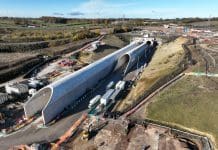The perception of procurement needs to change, from its current position of being seen as a barrier to progress and to become the ‘enabler’ of productivity, says Constructing Excellence in their latest report, Nuclear Factory Thinking
The construction industry, as compared to other sectors, has flatlined in terms of productivity. One of the reasons for this is that the approach to procurement has not evolved to address the current landscape of the industry, with major clients now increasingly reliant on the expertise of external contractors to deliver complex outcomes, according to the Nuclear Factory Thinking report.
Paper objectives:
- The complexity of the process (particularly in public contracts)
- Failures in the proper application of evaluation criteria
- Too much emphasis on cost, overvalue
- The amount of time/resources/money spent on PQQ & ITT returns.
Constructing Excellence believe it is not sufficient to just simply implement improvement initiatives within client organisations. The network of organisations that are required to come together to deliver an infrastructure project needs to be coordinated and managed effectively.
Therefore, the role of procurement needs to move beyond getting the contracts in place, to managing boundary-spanning enterprise-wide activities. Developing suppliers’ capabilities by implementing training and continuous improvement programmes, forming collaborative relationships not only with its own supplier network but also between all of the suppliers in the construction sector supply chain.
It should be acknowledged that procurement, or acquisition, as it is sometimes referred to, has come a long way in recent years. However, the Nuclear Factory Thinking report states there is still far to go and still much to do.
The Nuclear Factory Thinking report states: “Building on the good work done by Project 13, The Institute of Civil Engineers and the Infrastructure Projects Authority.
“It is acknowledged that a radical change to the way we go about procuring or acquiring the goods and services required to achieve productive outcomes, is undeniable.”
Read the full Nuclear Factory Thinking report, delivered with BRE, here.














